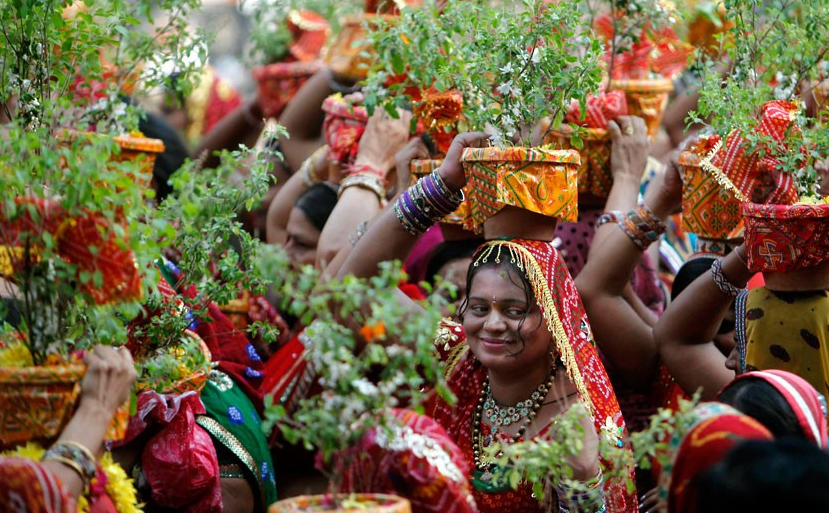I give thanks to this goddess plant Tulsi. She has helped me deal with numerous stresses and overwhelming demands. She's helped me to relax - which has given me the energy to say no to things and to finding the energy for the things that need to get done and those nurturing things that feed me in return. She carries an offering bowl, she offers herself, what do we offer in return?
It is hot here in the Appalachians. Way too hot for this transplant to cope. Summer is hectic enough - so many things demanding that small precious amount of energy. Energy that is quickly depleted from a bad nights sleep - which starts the cycle of the next day off with even less energy to begin with!
But there is magic in these nights. A chorus of singing frogs and a light show from hundreds of will-o-the-wisp fireflies pulsing in the trees. Pulsing in rhythm with a scattering of stars sprinkled out in the dark skies above them.
What I really miss is a cooling down at night. Just now in Scotland it barely gets dark. There is a long dwindling twilight stretching out for hours. Oh how strange it is here to go indoors and suddenly when you come out in 20 mins later it's already dark. That will never cease to confuse me, night as a great magician robbing me of twilight. Twilights are powerful thresholds, great gradual waning of light. It's in that threshold that spirituality was born, there that our ancestors listened to the land - and that the land told them the sacred stories.
The climate is chaotic, I suffer boughts of crippling anxiety - what’s to come, what is unfolding around the world. I just can't cope and a horrible anxiety grips me. At these times I turn to Tulsi/holy basil (Ocimum sanctum) and she offers sanctuary.
Tulsi has been honored as sacred in India for thousands and thousands of years. It is kept in many Indian courtyards where it is believed to offer divine protection. For more than 5000 years Tulsi has been considered India's "Queen of Herbs" and has been revered as one of the most sacred herbs in India, infused with healing power. Hindus view Tulsi (also spelled Tulasi or Thulasi) as a goddess in the form of a plant bestowed with great spiritual and healing powers. According to legend, no amount of gold could outweigh Krishna's power, but a single Tulsi leaf placed on the pan in loving devotion tilted that scale. In India today, Tulsi is still traditionally grown in an earthenware pot in every family home or garden, and the leaves are used to make a delicious and refreshing tea that possesses wonderful health benefits.
As Tulsi traveled west along the early trade routes from the Orient to Europe, it became known to the Christians as "sacred" or "holy" basil as is reflected in its Latin botanical name, Ocimum sanctum. They hailed Tulsi as "The King of Herbs' instead of as a queen, and Holy Basil became routinely included in legends, offerings and worship rituals and was looked on by many as a gift of Christ.
Medicinally it's been used in the treatment of colds and flus to cleanse the respiratory tract of toxins, and in the relief of gas and bloating. The oil is an antioxidant and is used for pain and arthritis. Recent scientific reports have confirmed the healing potential in medical conditions ranging from diabetes to cancer.
Promotional video from Organic India
Tulsi is considered an adoptogen, a group of herbs which greatly improve your body's ability to adapt to stress, whether it's a hectic schedule, heat or cold, noise, high altitudes or any number of other stressors. This elite class of herbs impart strength, energy, stamina, endurance, and they improve mental clarity. In many parts of the non-Western world adaptogens are used extensively in high-risk, fast-reflex occupations, from athletes to miners to deep sea divers. Stress poisons every inch of the body. It cripples the immune system, upsets delicate hormones, and disrupts digestion, among other things. Most dangerous of all, it dials up inflammation. Stress lies at the root of every inflammatory disease, says Aggarwal, who is chief of the cytokine research section in the department of clinical immunology, bioimmunotherapy, and experimental therapeutics at the University of Texas MD Anderson Cancer Center in Houston.
Ginseng and other adaptogenic herbs share rare and coveted traits — they mitigate the negative impact of stress by strengthening and stabilizing your body. “No category of herbs holds more potential for overworked, overstressed Americans than adaptogens,” says David Winston, RH (AHG), herbalist, ethnobotanist, and coauthor of Adaptogens: Herbs for Strength, Stamina, and Stress Relief (Healing Arts Press, 2007). “They are a bridge that can carry us over stressful situations with our health intact.”
The idea behind adaptogenic herbs is that a plant’s DNA can do for people what it’s done for plants for millions of years — make us more pliable, adaptable, and resilient. Each of these herbs has its own personality, thanks to different active ingredients. Some are more stimulating, while others are more calming; some dial down a hyperactive immune system, and others increase immune response.
Women carry holy basil plants (Ocimum tenuiflorum) on their heads during a religious procession in Hyderabad, India
Tulsi also plays a vital role in the Indian lunar calendar. Kaartik (October-November) is loved by Tulsi. During this time the holy plants are decorated with structures of sugar cane, mango leaves and flowers. One day during this period is celebrated as “Tulsi Vivah” or the wedding day of Tulsi and Shaligram (stone form of a sacred lingam). The Tulasi goddess is formally married to Lord Vishnu annually on the eleventh bright day of Kaartik; this inaugurates the marriage season in India.




